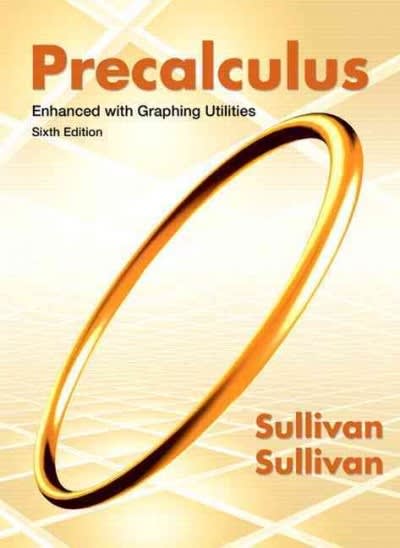Question
Question 1 The mean weight of a Scottish terrier is accepted to be 20 lbs. A dog breeder thinks that the weight is more than
- Question 1
The mean weight of a Scottish terrier is accepted to be 20 lbs. A dog breeder thinks that the weight is more than 20 lbs. What is the alternative hypothesis for this claim?
- Question 2
Let the alternative hypothesis be. Based on this hypothesis, what type of test would you perform?
Two-tailed
Left-tailed
Right-tailed
Unable to determine from the given information
- Question 3
A car manufacturer advertises that its new subcompact models get 49 mpg. An independent group tests this claim by driving 31 cars. They find that the mean gas mileage was 51 mpg with a standard deviation of 3.4 mpg. They claim that the gas mileage is greater than 49 mpg. Using a significance level of 0.05, calculate the p-value of the test stat 3.28.
0.108
0.007
0.999
0.001
- Question 4
What is the only option for the null hypothesis?
- Question 5
Type I error
Type II error
No error occurred. The decision was correct.
There is not enough information to make a conclusion.
- Question 6
When calculating a test statistic about the population mean when sigma is unknown, which distribution would you need to use?
z
t
Binomial
x2
- Question 7
Which of the following variables represents the rate of a type I error?
- Question 8
In a poll of 725 teens aged 13 to 17 showed that 52% of them had made new friends online. Use a 0.01 significance level to find the p-value of the claim that more than 50% of all teens have made new friends online if the test stat is 1.08.
0.1407
0.8593
0.2208
0.7792
- Question 9
If the test statistic is a z-score, find the critical value of a right-tailed test assuming a significance level of 0.1.
-1.28
1.28
2.28
-2.28
- Question 10
Suppose the critical value for a left-tailed hypothesis test is -1.99 and the test statistic is -0.45, what is the appropriate conclusion?
Reject the null hypothesis
Fail to reject the null hypothesis
Reject the alternative hypothesis
Fail to reject the alternative hypothesis
- Question 11
Define a type II error.
The failure to reject a false null hypothesis.
The acceptance to reject a null hypothesis.
Rejecting a true null hypothesis.
Accepting a true null hypothesis.
- Question 12
In an example hypothesis test, the conclusion is to reject the null hypothesis. If the null hypothesis is true, what type of error occurred?
Type I error
Type II error
No error occurred. The correct decision was made.
There is not enough information to make a conclusion.
- Question 13
The mean weight of a Scottish terrier is accepted to be 20 lbs. A dog breeder thinks that the weight is more than 20 lbs. She records the weight of 45 Scottish terriers and finds that the average weight was 21.3 lbs with a standard deviation of 2.8 lbs. Based on her sample, calculate the test statistic.
t = 3.11
t = -3.11
t = 2.89
t = -2.89
- Question 14
When does a type I error occur?
When the random sample does not accurately represent the population
When an error on the statistician's part occurs during calculations
When the sample size is too small
A type I error randomly occurs in nature
- Question 15
Suppose the p-value for a hypothesis test is 0.037. Using? = 0.05, what is the appropriate conclusion?
Reject the null hypothesis
Fail to reject the null hypothesis
Reject the alternative hypothesis
Fail to reject the alternative hypothesis
Step by Step Solution
There are 3 Steps involved in it
Step: 1

Get Instant Access to Expert-Tailored Solutions
See step-by-step solutions with expert insights and AI powered tools for academic success
Step: 2

Step: 3

Ace Your Homework with AI
Get the answers you need in no time with our AI-driven, step-by-step assistance
Get Started


